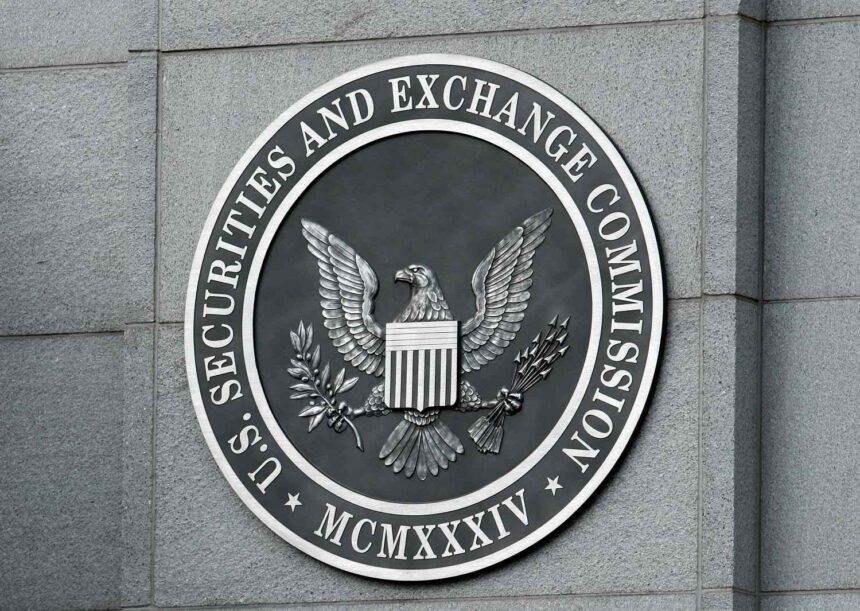The Securities and Exchange Commission (SEC) has recently unveiled its approval of new general listing standards for cryptocurrency exchange-traded funds (ETFs), marking a significant development for investors and the crypto market. This updated framework is poised to facilitate a substantial increase in crypto ETF listings in the weeks and months ahead.
By endorsing generic listing standards for commodity-based exchange-traded products across major exchanges including Nasdaq, Cboe BZX, and NYSE Arca, the SEC has streamlined the approval process significantly. This change eliminates the previous requirement for individual approvals under Section 19(b) of the Securities Exchange Act of 1934, which had previously burdened issuers with lengthy application procedures.
Historically, the application process for spot crypto fund issuers has been both prolonged and complex, necessitating public commentary and extensive SEC review. Consequently, the majority of existing crypto ETFs primarily focused on bitcoin and ether, the two most prominent cryptocurrencies by market capitalization. However, the new guidelines aim to expedite launch timelines and reduce administrative costs, thus expanding accessibility to a wider array of cryptocurrencies within an ETF structure.
A noteworthy highlight accompanying the SEC’s announcement is the approval of the Grayscale Digital Large Cap Fund (GLDC), the first multi-crypto asset ETF in the United States. This fund includes not only bitcoin and ether but also other cryptocurrencies such as XRP, Solana, and Cardano.
Investors can anticipate an influx of new crypto ETF offerings starting in October, featuring a variety of digital assets that have previously remained outside the bounds of traditional investment vehicles. Analysts speculate the emergence of themed ETFs, such as those centered around popular memecoins like Dogecoin, alongside multi-crypto asset funds designed to capitalize on trending investment themes.
As outlined by Bloomberg analyst James Seyffart, essential criteria for a crypto ETF under the new standards include the presence of a futures market on a regulated exchange for at least six months. For those offerings that do not fit within this new framework, traditional approval routes through individual filings remain an option.
Industry reception to this announcement has generally been positive, signaling a progressive move towards regulatory clarity in the crypto space under the SEC’s guidance and the current administration. This regulatory shift not only eases the pathway for firms to introduce diverse cryptocurrency offerings but also creates more opportunities for investors interested in expanding their portfolios.
Seyffart predicted a rapid acceleration in ETF launches, stating that the industry is on the brink of an explosive growth period. Similarly, Bitwise Chief Investment Officer Matt Hougan highlighted a historical precedent, noting that previous adjustments to ETF listing standards resulted in a significant uptick in listings—from approximately 117 launches annually to around 370.
A digital assets platform, Galaxy, has identified ten tokens that currently meet the new expedited listing criteria, including Bitcoin, Dogecoin, Solana, and others. Both ADA (Cardano) and XRP are expected to meet the requirements shortly, with several applications for ETFs involving these tokens already submitted to the SEC.
In earlier developments, the SEC had green-lighted spot bitcoin ETFs in January 2024, a move that arrived more than a decade after initial applications from prominent figures in the crypto community. By July of the same year, ether ETFs received regulatory approval. Currently, bitcoin ETFs are managing approximately $150 billion in assets, while ether ETFs hold just under $30 billion, reflecting growing investor interest in cryptocurrency-linked investment products.







